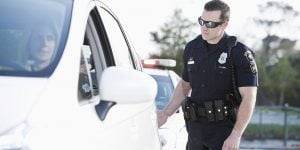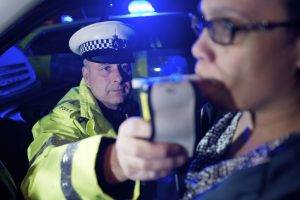When an officer pulls you over upon suspicion of driving while intoxicated (DWI), keep in mind that you are under investigation from that moment on. The policeman is trying to determine if you are too drunk to drive the vehicle.
Here’s what you need to do to protect yourself:
Pull over as smoothly as possible
Do not slow down impulsively or recklessly. Choose a safe location and smoothly pull over. Lower your windows all the way down and stay seated with your hands on the wheel, where the officer can have a clear view. Each of your movements is under observation and can influence the jury at the time of your hearing.
Do not make abrupt movements
As the officer approaches from behind your vehicle, you must stay still. Do not make any sudden gestures which could be misinterpreted as attacks. The first instinct of police officers is to protect themselves, and they will view any hasty motion very cautiously. Do not give them a reason to suspect you further.
Be courteous
Answer the officer’s questions respectfully and step out of the vehicle if you are asked to. Do not disagree or it could be viewed as aggressive behavior. You can explain your side of the story in the courtroom, and you’ll be needing a positive report from the officer. So, avoid doing anything that can be considered hostile.
Refuse to take field sobriety tests
You are well within your rights to refuse to perform field sobriety tests. Officers insist on field sobriety tests or FSTs in order to find “clues of intoxication.”
Roadside DWI tests like balancing on one leg or eye coordination tests are designed as effective tools to assist the officer’s testimony in the trial. Even sober people, depending on their age or medical condition, can test poorly and the officer can find signs of being impaired despite not being intoxicated.
FSTs are completely subjective and it depends on the officer if you pass. Remember, the officer is the first witness for the prosecution. So, it is advisable to decline, but try not to come off as rude. Be as polite as you can.
Refuse roadside breathalyzers
Preliminary breath tests or Preliminary Alcohol Screening tests can be conducted to check for indicators of intoxication, but again, you are under no obligation to perform these tests. Handheld breathalyzers are highly unreliable and inaccurate, as they are susceptible to human error and interpretation.
Blood alcohol concentration (BAC) can vary depending on the temperature, distance from the machine’s mouthpiece, driver’s state of mind, or if the driver is anxious and hyperventilating, or due to the presence of other chemical compounds in the mouth.
But once you are at the police station, you are obligated to undergo a chemical test. You can face additional penalties if you refuse a chemical test – a blood sample test or breath test. It is better to choose the breath tests because the results are unreliable and their accuracy can be challenged during the trial.
Refrain from lying
Behave politely, always assuming that everything you say is being recorded. The officer needs your name, license, and registration. Other than those questions, if you find yourself in a tough spot, don’t try to lie—because if so, the fact that you lied to a police officer can be used against you in a criminal trial.
Officers count on your nervousness in this situation to find something to incriminate you. In your anxiety, you might say something that can become ammunition to prosecute your case. You can “Plead the Fifth” and exercise your right to remain silent. No one can force you to speak, and don’t waive your right by trying to strike up a conversation with the officer. Respectfully decline to answer any further questions.
Once you are released, take down notes on everything that can assist in your trial – things like the officer’s instructions, how many drinks you had, where you were going, and your state of mind.
The officer can charge you with other drug and alcohol-related crimes like open container violation when there is an open container of alcohol found in the passenger seat.
So, as soon as you can, contact a qualified DWI attorney who specializes in DWI laws and has a proven track record of minimizing penalties through options like the Alcohol Education Program, community service, and Administrative License Revocation (ALR).
Fort Bend DWI Attorney – David Hunter
Our team at David Hunter can be aggressive and provide our clients with a strong and unbreakable defense. Call or Talk To Us 24/7 at (281) 265-1515
What to Do When You Get Pulled Over for DWI | David Hunter


